
Make no mistake. JK Bharavi set out with the lofty objective of stirring the youth of the country (to be sure, only a fraction of the Telugu-speaking population) into undertaking glorious nation-building task. That's why, he merrily portrayed Adi Shankaracharya as someone who comes across as an ABVP or an RSS pracharak! Creative liberty should not be used as a license. And that is exactly what creative freedom becomes in his hands in a number of places. A nonpareil jnani like Shankara is projected as possessing shades of pugnacity. And, true to the Indian habit of borrowing from others, the writer puts this Karl Marx-inspired clarion call into Shankara's (played by Kaushik) mouth: "Act. You have nothing to lose but the chains of ignorance." "Spread the Bharatiya message of love and compassion," the Jagatguru says curiously sounding like a naxal leader!
The film begins with Chiranjeevi, the former Megastar (not one audience whistled even mildly, so he should be called a former), raising a toast to Shankara, the saint-philosopher who resuscitated Hinduism. A saint is bothered by several metaphysical questions about what is vidya, what is avidya, what is reality, what is illusion, so on and so forth. Is born Shiva Himself as Adi Shankara to propagate the truth of Advaita.
Even as a child, Shankara wanted to transcend death and lead a saintly life. After completing the age of 8, he goes on a tour of India as he is destined to dispel the darkness, unite the warring sects and drive out, among other things, Tatagatha Buddhism from Bharat.
Born in Kerala, Shankara's Bharat, as seen through Bharavi's eyes, has uniform conditions. Everywhere, priests are embodiments of arrogance and ignorance. Dogmatism is ruling the roost from the northern most tip to the southern most. So much so, one character says that if the warring factions behead one another, "desha janabha taggutundi." Outrageously silly, is it not?
Bharavi manages to hold our interest in the first half. It is because a range of characters, such as Lord of Agni (Tanikella Bharani), Rudraksha Rushi (Mohan Babu), Kapala Marthanda Raju (Suman) entertain. The pace is fast and the language authentic. Sri Hari, Naga Babu, Roja and Meena are seen. The biggest treat, of course, is Nagarjuna, who played the famous chandala's role. The conversation was superbly presented and the acting of both Kaushik and Nag stand out for their brilliance in this scene.
However, the second half is a huge let down. The defining moment of Shankara's life was the long vada he had with Mandana Mishra (played by Sai Kumar). Sadly, the same is treated in an almost blasphemous manner by the director. Tomes of commentary must have been written on the philosophical debate but Bharavi 's dialogues hardly give us the substantive aspect of the religious debate. Bharavi attempted to top the scene with levity (like K Raghavendra Rao is wont to do) but in the process, he forgot the essence.
What is disgusting about this film is that all characters except Shankara and those behind him alone come across as men of wisdom. This is not only fallacious but also counter-productive because it only goes to lessen the impact that Shankara's unmatched wisdom should have on the audience. Shankara's greatness lied in the fact that he defeated the wisest scholars. This is acknowledged in the last scene by a character but it actually sounds like a street-fighting activist making a case for his favourite leader's elevation. Thus, in a film on the life of Hinduism's greatest ever reformer-saint, his philosophical accomplishments and victories in debates become a footnote.
Bharavi's attempt at comedy is another liability. LB Sriram is seen in a cameo as a Baba Ramdev look-alike. The worst part is that, in a film with the avowed intention of spreading the message of Vedantic Advaita, this character is shown suffering from a yogic posture. If Bharavi is not a frivolous thinker, he should urgently delete the scene. There was no reason to have two scenes in which Posani remembers how Raja Amaruka had been before Shankara made a parakaya pravesha. This part of the film is entirely unimaginative as well as unnecessarily crude.
The episode in which Shankara urges Lord Krishna to replay His leelas is good.
For a film of this kind, the musical output should have been of high quality; Nag Srivatsa manages to score a good BGM but the songs are sub par.
The short run-time comes as a gift.
The CG work is not up-to-the-mark.
Kaushik proves himself as a good actor; he looks pious in several places. Nag stuns in his brief role. All other actors give their best output.
Verdict: There is some mis-portrayal of Shankara but the first half is engaging. The second half is sleep-inducing for good part; the last 20 minutes, however, is gripping.
Rating: 3/5
Rating: 0 / 5.0
Showcase your talent to millions!!
Telugu Movie Reviews
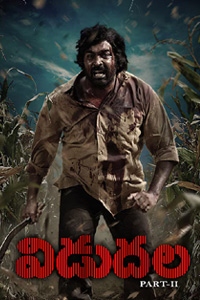 Vidudala Part-2
Vidudala Part-2
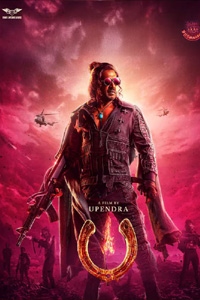 UI
UI
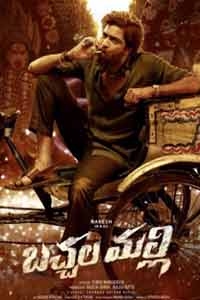 Bachhala Malli
Bachhala Malli
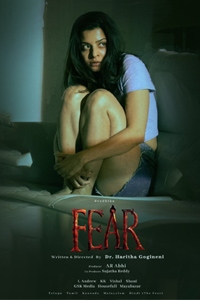 Fear
Fear
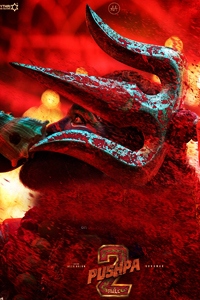 Pushpa 2: The Rule
Pushpa 2: The Rule
 Devaki Nandana Vasudeva
Devaki Nandana Vasudeva




Comments